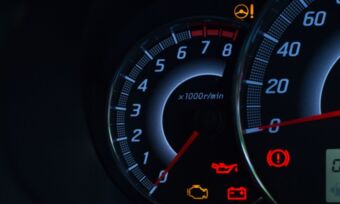If you’re shopping around for a car and considering your various options, you may conclude that the best way to go is to buy from a private seller or dealership in another state or territory. But buying a car interstate involves a bit more legwork than the usual process. Here’s an overview of some of the factors you may want to consider, and how the process generally works.
Can I buy a car interstate?
Yes, you can buy a car from interstate. There are a number of reasons why you might decide to do so: it might be that you want a vehicle with particular specifications and it’s only available from an interstate seller; it might be that the car you want is rare; or it might even be that you’ve found an everyday vehicle for a better price in another part of the country.
How do I inspect a car in another state?
If you’re buying a car from a seller in another state, you may not be able to inspect it in person, but online automotive services marketplace AutoGuru advises that you can pay a professional mechanic to conduct a pre-purchase inspection on your behalf, which will generally cost between $130 and $300.
According to AutoGuru, this inspection will generally include:
- A thorough visual once-over, including the interior and exterior of the vehicle
- A check of the engine bay, wheels, tyres, brakes and suspension
- A road test to check that the engine and transmission both work.
AutoGuru notes the mechanic will generally also examine the car’s electronics, engine, radiator, instruments and gauges, seats and seatbelts and underbody, among other things.
Of course, it’s hard to substitute being able to go and see the car for yourself. One possible workaround could be inspecting or even test driving a car of the same model nearer to where you live, if that’s possible, to ensure you are happy with the look of the vehicle up close and how it drives.
Another pre-purchase step you may want to take is to use the car’s Vehicle Identification Number (VIN) to search for it in the government’s Personal Property Securities Register (PPSR).
This costs $2 per car and will reveal if the car is stolen, has been previously written off, is currently being used as security for a loan or otherwise has debt attached to it.
You may also want to obtain a quote for the cost of insuring the car based on its make, model and the year it was made, so you have a general idea of how much it will cost to insure if you do buy it.
How to transport a vehicle from another state once you’ve bought it
When buying a car interstate, you’ll also have the matter of transporting it to consider – if the vehicle is halfway across the country, how can you get it home? Here are several options for transporting a car from another state:
1. Having it freighted to you on a truck
This is generally the most hands-off option available to you and means paying a company to transport your car for you using a freight truck. This could involve contacting a vehicle transport provider, obtaining a quote based on the size of your car, the distance it has to travel and how soon you need it delivered, and then paying the provider to transport your car.
PrixCar says that the cost of transporting a car in Australia can vary, but you might expect it to cost anywhere from $0.40 to $0.60 a kilometre. So for example, based on that estimate, the cost of transporting a car from Melbourne to Brisbane could cost anywhere from $710 to $1,065.
Haulage company uShip also says a variety of factors can affect the total cost of delivering a vehicle to its new owner. It estimates that for distances between 300 and 2,000 kilometres, car transport costs could range from $400 to $1,700.
Getting quotes from a number of providers may help you to save money and find a solution that meets your requirements.
It may also be worth considering cargo insurance which generally protects shipments from loss, damage, or theft while it’s being transported.
2. Have someone drive it to you
If you have a friend or family member who lives near where the car is currently located, you could ask them to drive the car to you. But it’s worth keeping the following points in mind:
- They may not be legally able to drive the car (do they have a full licence?)
- Are they covered by insurance to drive the car?
- You may still want to compensate them for their time and effort, even if that just involves shouting them dinner when they arrive with your new car, as well as covering the cost of fuel for the trip.
Additionally, if you don’t register the vehicle in your name in the state it’s being purchased from (and then transfer the rego to your state when it arrives), you’ll need to obtain an unregistered vehicle permit (UVP) for the car before it can legally be driven on public roads as an unregistered vehicle.The exact process and cost of obtaining an unregistered vehicle permit for the car will depend on which state or territory the car is in.
Another option could be to come to an agreement with the seller that the vehicle stays registered in their name while being transported. But the seller may want you to sign a declaration accepting responsibility for any accidents that happen while it’s in transit.
Note: you’ll need to obtain the permit from the government of the state the car is in. Check with your local state or territory government to confirm whether you’ll also need a UVP to drive the car once it has been driven to you.
You could also explore the option of hiring someone to drive the car to you. There are companies that specialise in this, often called ‘long distance driving’ hire or ‘car relocation services’. But be sure to read the terms and conditions, as well as what insurance applies, before you sign any contract.
3. Driving it home yourself
When buying a car interstate, you could choose to travel to the car’s location and drive it home yourself. Many of the same considerations that apply to asking someone else to drive it home apply here as well. You’ll need to factor in fuel costs, and make sure you’ve been granted an unregistered vehicle permit so you can legally drive the car home.
As the Australian government’s business website explains, you may also need to pay stamp duty on the purchase. The stamp duty you’ll need to pay will depend on the value of the car and your state or territory’s rates of stamp duty. Depending on the state or territory you live in, you may be able to pay your stamp duty either online or at a customer service centre.
- Save 15%^ on your first year’s premium when you purchase a new Car Insurance policy online.
- 24/7 Phone & Online Claims.
- Budget Direct - Insurance Solved.
- Insurance that's a bit more you-shaped.
- Canstar’s 2025 Most Satisfied Customer Car Insurance – NSW, VIC, SA
- Lodge a Claim 24/7 with our Advisors
How to register a car you’ve bought from interstate
Once your car has arrived, you’ll need to register it in your state before you can drive or insure it. Depending on the state or territory you live in, you as the buyer of the car may be responsible for transferring the car’s registration from the buyer to you. If so, here’s an outline of the process for doing so.
- If you don’t already have a valid roadworthy or safety certificate for the vehicle, one of the first steps will be to acquire one by having the vehicle inspected by a licensed professional. Check your state or territory’s laws to see who’s allowed to issue safety certificates, and how much it will cost.
- Once your car has been certified as roadworthy, you can then apply to transfer its registration from the buyer to you through the appropriate state government department, either online or at a customer service centre.
How to pay for a car interstate?
Depending on the seller, you may be able to pay through methods such as bank transfer, PayPal, cheque, credit card (depending on your card limit), or if you are using a car or personal loan to purchase the car, your lender may make the payment directly to the seller. As a starting point, it could be worth asking the seller which payment options they’ll accept and then working out which option will be most suitable for you.
For example, some payment methods, such as paying by credit card, could involve a fee or surcharge. Using a credit card may also involve other risks, particularly if you do not clear the balance before interest starts to be charged.
In addition, WhichCar warns if a seller suggests certain payment methods, buyers should be wary. “If a seller tries to get you to pay for a car via money order, Bitcoin, pre-loaded credit cards or wire transfer you should immediately be cautious that they’ll take the money and run away with the car,” WhichCar says.
Instead, if you’re dealing with a private seller, it suggests that completing the transaction by bank transfer via a teller in a physical branch may be a safer option, preferably with both the buyer and the seller present if that’s possible.
How do I make sure I’m not being scammed before paying for the car?
In addition to taking care when deciding how to make the payment for the vehicle, it could be worth doing some checks to ensure that you are buying what you think you are. For example, to ensure that the listing is genuine, you could ask the seller to send you photos or videos of the car to verify that it’s in their possession and that they didn’t pull the images accompanying the listing from the internet.
Additionally, online vehicle marketplace Carsguide recommends asking the seller for their phone number so you can call them and talk about the car with them, as well as checking the contact details the seller provides.
As mentioned above, having the car inspected by a qualified mechanic and checking its VIN may also help you to protect yourself.
Cover image source: Minerva Studio/Shutterstock.com








